Creating and Producing New Work Together
Tara Robinson & Steffan Donnelly
Tara Robinson & Steffan Donnelly co-created and co-produced My Body Welsh, currently available to watch online, a production from their two companies Invertigo Theatre, The Conker Group, and venue partner Pontio, Bangor. Having toured Wales the show went on to visit the International Theatre Festival of Kerala in 2018, International Literature Festival of Kerala and National Gallery of Mumbai in 2019, and has recently returned from performances in Tokyo. It’s an investigation into small town life on Anglesey, what it means to be from somewhere, and how truth, history and stories weave together to forge a sense of national identity. It toured across Wales in January 2017 and is published by Methuen Drama. This article originally appeared in Bloomsbury’s Actors and Performers blog.
Co-writing, co-creating and co-producing is definitely fun, rich, varied and exciting, it’s also satisfying and sometimes tricky.
We’ve jotted down some basic advice based on our findings working together…
FIND SOMEONE YOU LIKE THEN DATE THEM
We have zero advice for how you find this person. For us it happened by chance working on Titus Andronicus at Shakespeare’s Globe. We discovered we had the same sense of humour and enjoyed each other’s company. But that in itself is a good start. The thing we advise is dating them. In a professional way.
Sue Emmas describes the relationship between The Young Vic and their directors as a marriages. The two parties have arrived at a production after considerable ground work: dating, spending time together, seeing each other in different situations and scenarios and finally deciding they’d like to take that risk and go for it. Our collaboration has undergone growth under the same principles.
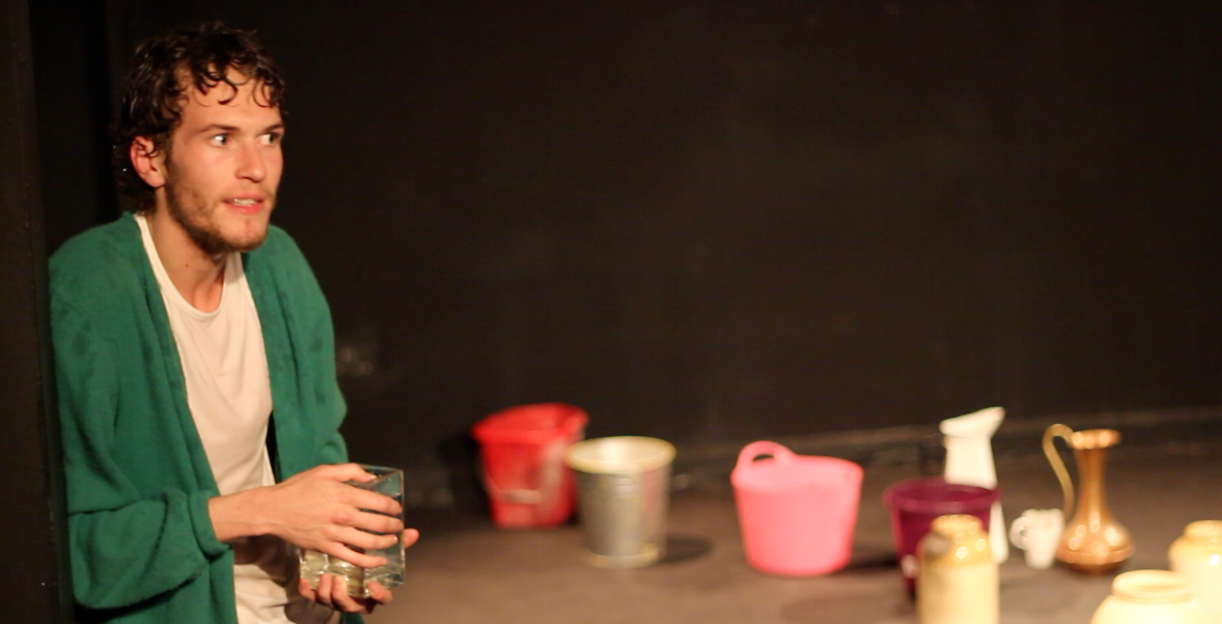

Our first date was to put together a 20 minute scratch for a work-in-progress night at Camden People’s Theatre in June 2014. The purpose of the scratch was to ask three things:
1. THE ART – Is this idea going to work? Do other people want to watch it?
2. THE ARTISTS – Do we bring out maximum creativity in each other?
3. THE PRODUCERS – Do we both care the same amount about all the other stuff that isn’t creative?
Observations that really stood out at this very early stage in proving No.3 were:
1. We both assumed the same amount of responsibility for this quirky creation of ours. Steffan was just as focused on being the performer as being organisational, Tara just as focused on the text as she was on Steffan (and so on)
2. We both had the same level of interest in our audience – who would come and see the scratch
3. We were both happy to do an equal number of menial tasks (carrying furniture across London on buses for example)
BE CLEAR ABOUT YOUR AMBITIONS
After you know you like working together, take a moment together to discuss what you want from the show and why. We did do this, although interestingly, it took roughly two years for those things to match up completely (of course, as artists you always have other things on the go and priorities shift).
We’ve come to a point now where we look at each opportunity against a variety of potential “gains”. We ask the following questions:
1. Will it stretch us artistically?
2. Will it raise our profile / make us contacts?
3. Will somebody specific benefit from it which therefore makes it ideologically important?
4. Will this opportunity make us any money? (Can we at least pay ourselves properly?)
We usually try to make sure that at least two of the four can be answered with a yes before we do it. This is more applicable really after you’ve made the show and somebody asks you if you’ll do it as a one-off somewhere.
But you can warp / develop it for each step of the way too and use it as a way of communicating to each other what you want from each stage.
We debated whether or not to engage in what we felt would be a second round of R&D. We did and it was really worthwhile even though it felt at the time as though it would delay making what we knew we would make anyway. The result was a much more collaborative writing process…
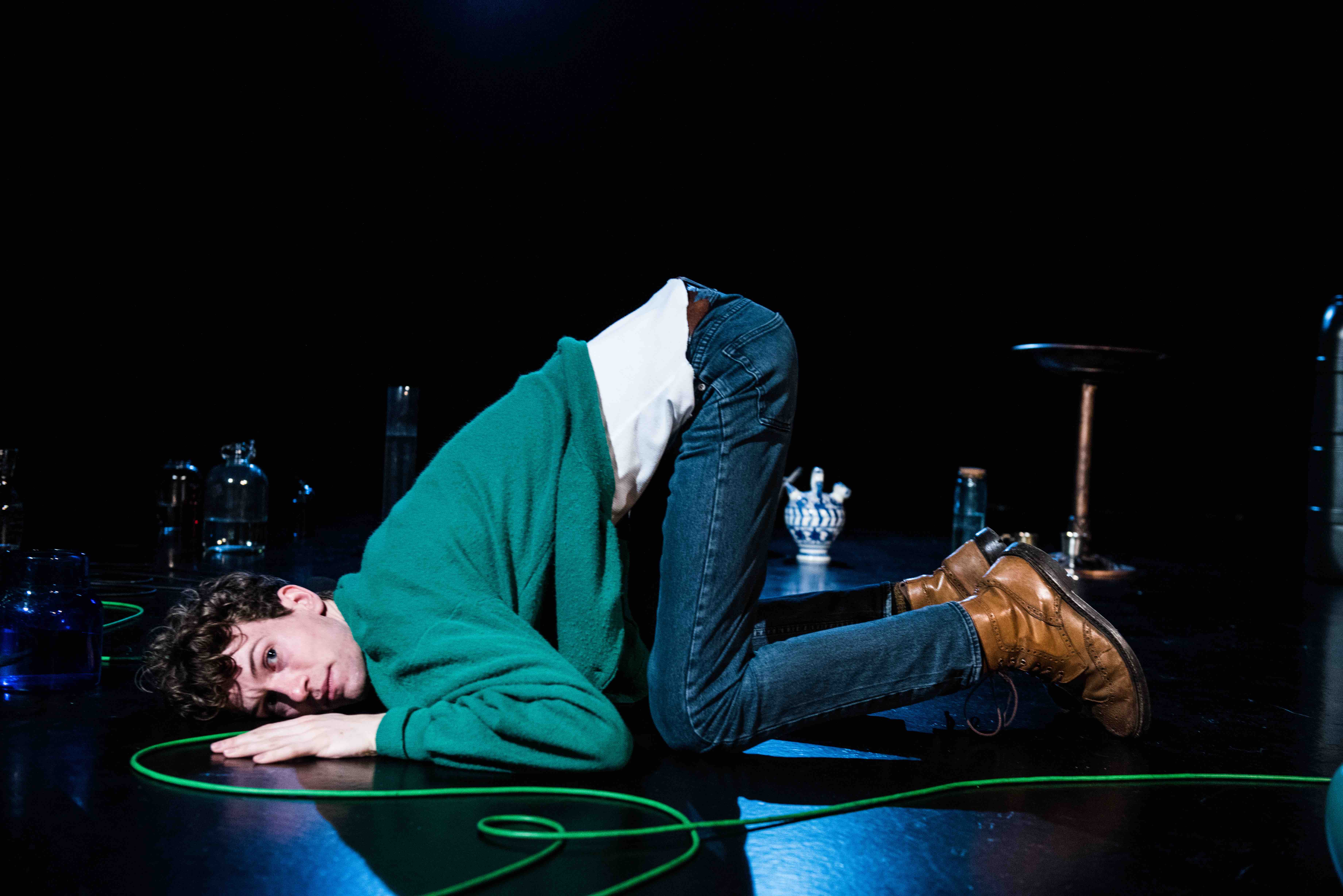
Steffan’s bum is the Isle of Anglesey in this part of the story.
WORK OUT A SYSTEM FOR HOW MATERIAL IS WRITTEN & GENERATED
When we had begun making the show, we would discuss ideas and stories we wanted to be in the piece. We did a huge amount of research into Welsh history and Celtic mythology (books, online, finding folk songs etc). Tara would go away and write, developing a particular style, and then the two of us would rewrite / interrogate and solidify rules in the rehearsal room together. This involved improvisation, utilising research, writing together in the room, remoulding and finessing our overarching storyline as we went along (lots of shifting post it notes!).
We spent a long time frustrated with a section about a leprechaun (yes, a leprechaun) and although it was actually quite well written, it jarred with both of us. After some time we realised that gradually it had become the only story still left in the pot that was magical mythical rather than folklore mythical. Creating a rule that said “no magical stuff” was very helpful from then on.
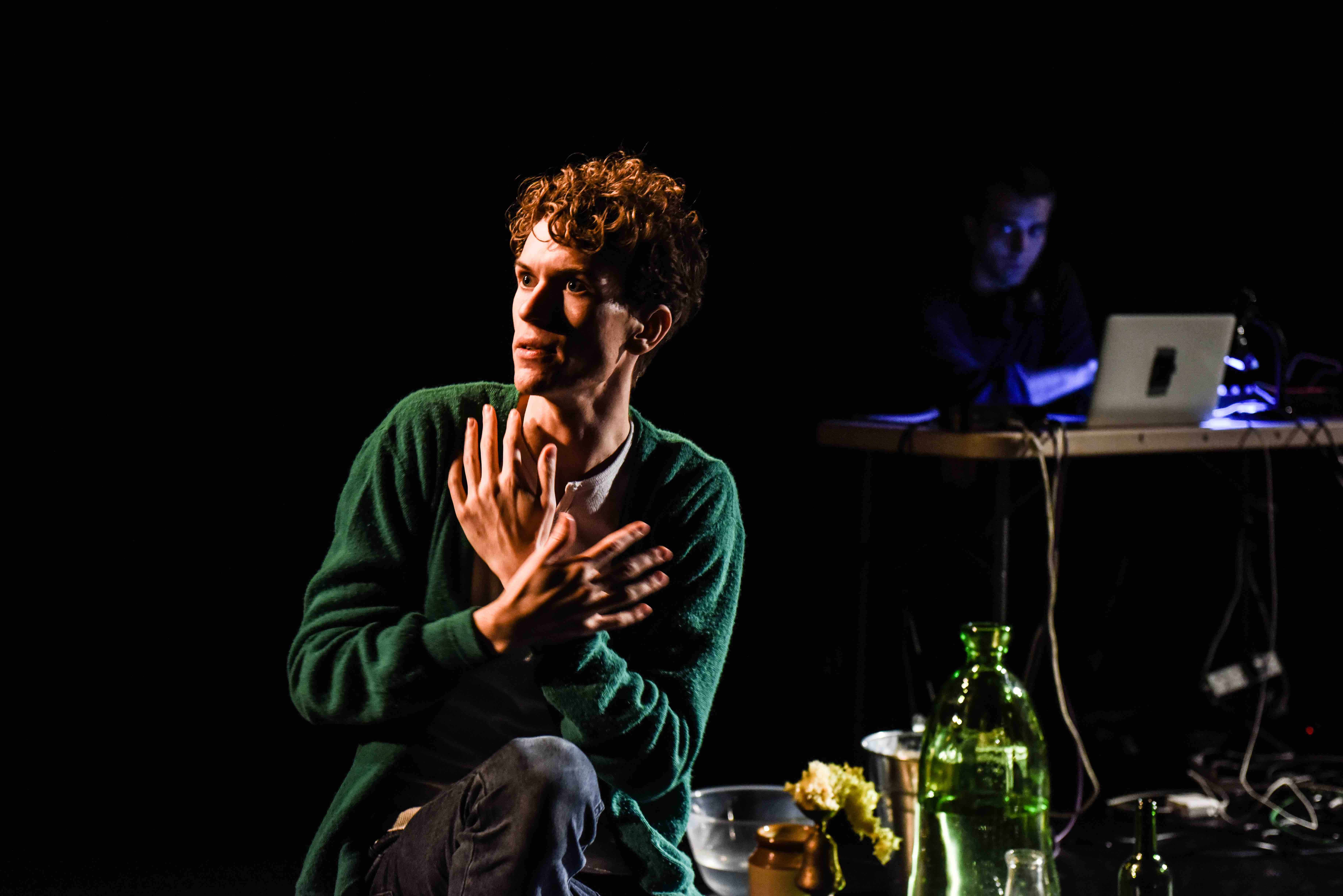

We found that being in a room together asking questions of each other much more productive than emailing. It’s amazing how an email full of notes or a word document with a review panel can feel like cold criticism, when a question face to face feels much more like creative problem solving. Therefore, a two-week R&D process was invaluable for us.
It didn’t write us a full play though, of course, and we didn’t want to enter into rehearsals without something close to a complete draft, so we spent some time writing separately between these two periods, sending drafts and ideas back and forth. By this stage we had developed enough trust and confidence together to comfortably work in this way. Tara compiled a draft, which Steffan then interrogated, editing the play’s dramaturgical shape. We entered rehearsals feeling confident but still open to making changes. Hang on tightly, let go lightly.
In fact, our first week of rehearsal involved just the two of us and was spent tightening the structure further, writing final redrafts together and testing new and existing sections by reading through the play in its entirety many times (loosely putting sections of the play on its feet towards the end of the week).
KNOW WHAT YOU’RE GOOD AT
When we decided to get married (a now tired analogy, sorry) and make the show, we discussed the things that we were both good at and not so good at and broke down the various anticipated jobs into columns. There is never going to be a science to this. Some things will take a lot longer than others and you won’t always know what the other person has done / is doing. You can either ask for updates or you can trust. We did a bit of both.
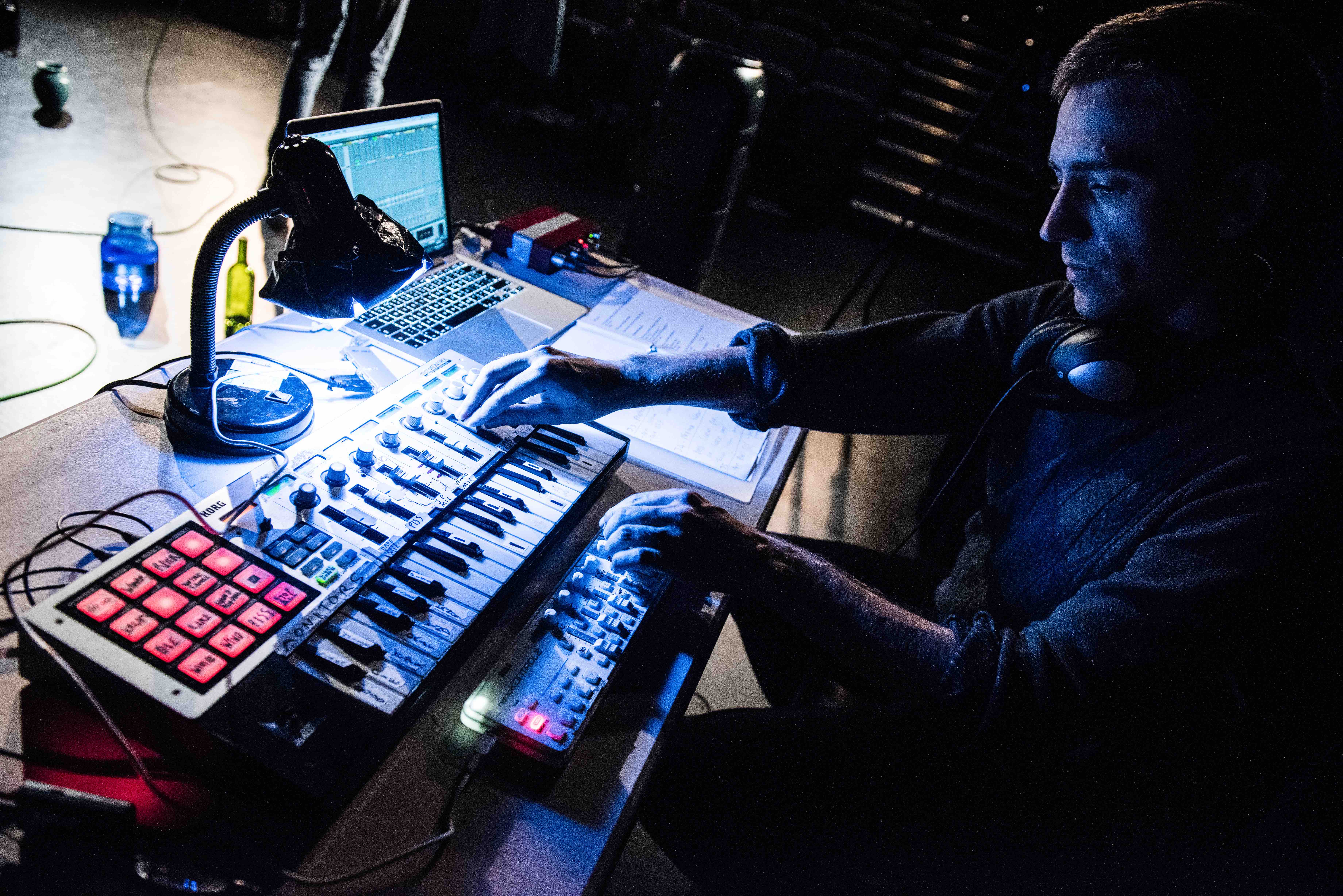
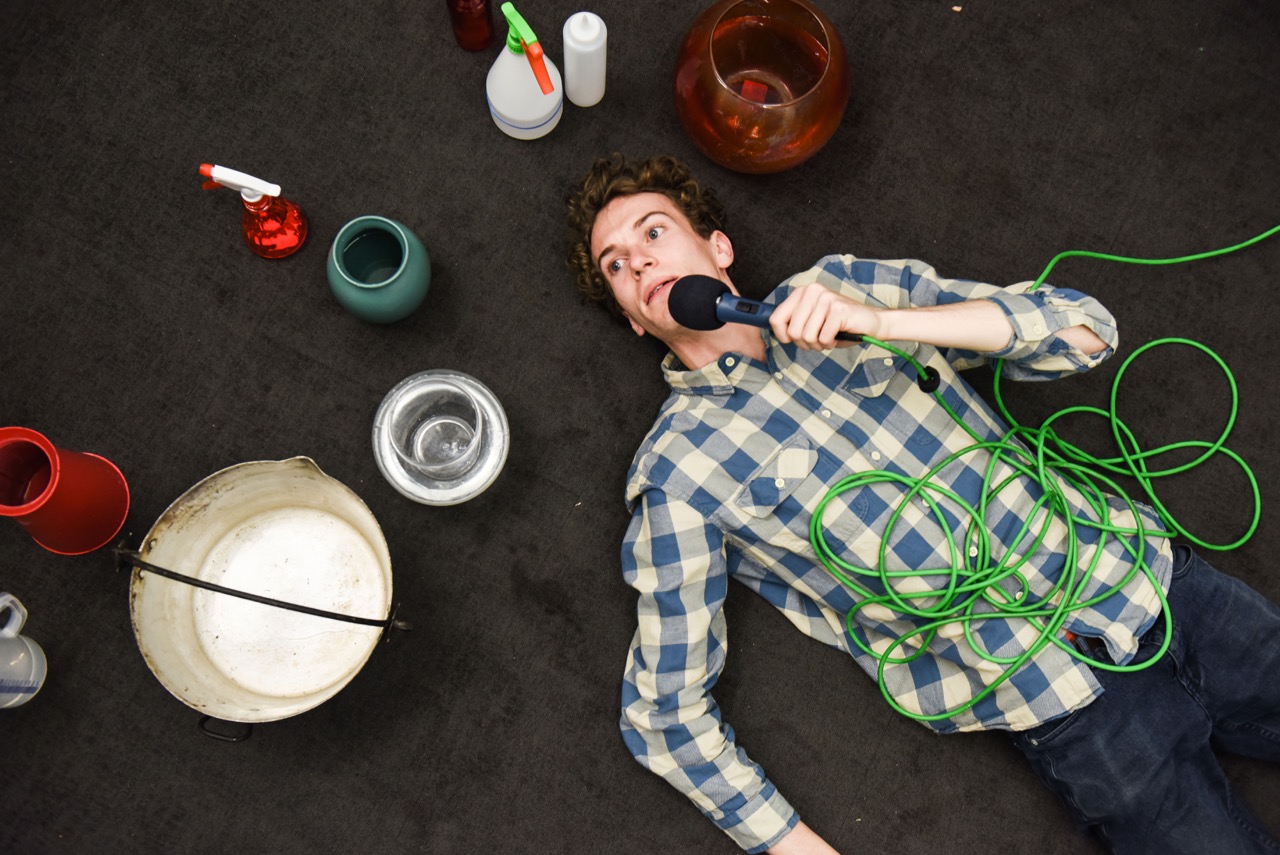
KEEP PRODUCING SEPARATE FROM CREATING
We’d love to be better at this. The major disadvantage of producing a work that you’re also creating is that you have lots to do and the stress of producing can creep into the rehearsal room. Try not to let it. We found that sharing some of these stresses with each other – even just talking them through – was helpful.
BE OPEN ABOUT THE FINANCES
It’s so embarrassing talking about money. Steffan’s company, Invertigo, received the various grants for the show but both companies (Invertigo and The Conker Group) shared the financial responsibility (if, for example, you end up with a shortfall – who is going to catch this?). If you do this, just be aware that you will therefore need to constantly update each other of differences in expenditure and income. We were quite good at this, but a google drive expenditure doc / reforecast would have made this easier.
Ideally, you’ll budget so that nobody needs to hack into a personal fee if you don’t sell enough tickets (you should be securing guarantees at each venue) but it’s not always possible, so just be as open as possible about this and make sure you get something in writing that’s agreed. We’ve heard of many horror stories. On this tour, we secured guarantees at almost all venues and also shared the financial risk between our companies (another reason why co-productions are useful).
Secure support in kind (Pontio and London Welsh Centre gave us space in kind or at reduced rates), Invertigo’s associate relationship with Pontio meant that we also had a huge amount of technical support in kind, some financial backing, and marketing assistance. This also looks great on application forms for grants so try to sustain and keep these fruitful relationships.
Obvious, but sometimes easy to forget or reduce drastically in moments of number crunching, give yourself a good contingency, you never know when you might need it.
CHECK YOUR MARKETING / USPs
Because you’re so close to the show you’re making, it may be useful to pass any marketing copy / materials by some trusted friends. The advantage of a producer who is not also involved in the creative process is that they can objectively consider how to talk about the show.
They can also talk as a third party to programmers and venues, condensing the show’s unique selling points (and not waffling on about its various inspirations or methods of working). One of the major advantages of producing your own work is that you can foster a direct relationship with the venue programmer. Many artists find that they miss out on building contacts in the same way that producers do because they’re not the one managing the logistics. Seize this opportunity.
AND FINALLY…
Ask for advice! We’ve learned a lot by doing it but a lot by asking too. Get in touch if you have questions, buy our play text and let us know what you think, and happy collaborating!
@InvertigoCo @TheConkerGroup @PontioTweets
